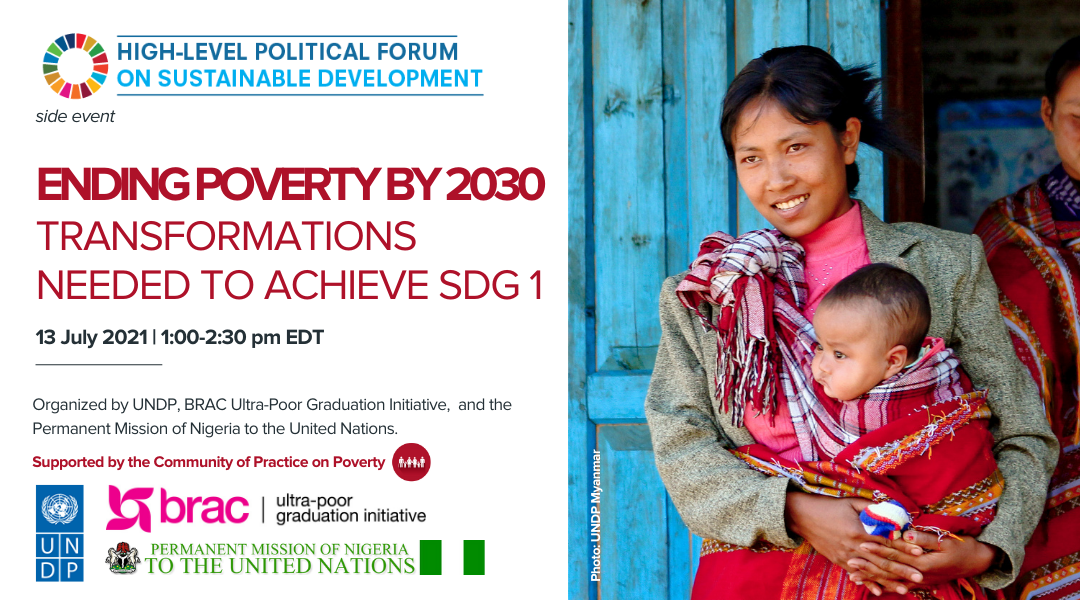
Ending poverty by 2030: Transformations needed to achieve SDG 1
Global poverty reduction has seen unprecedented progress in recent decades. The proportion of the world’s population living in extreme poverty went from 36% in 1990 to around 10% in 2017. Still, even before COVID-19, the pace of reduction had been decelerating by 2018. Forecasts indicated that 6% of the global population would still live in extreme poverty in 2030.
COVID-19 pandemic has increased the number of people living in poverty for the first time since 1998. The number of poor people is expected to increase in 2021 by between 143 and 163 million, while the total number of extreme poor could reach 1 billion in 2030 in a scenario of protracted economic recovery. And despite ongoing efforts to protect people, existing social protection programs remain both insufficient and inadequate. Insufficient, as half of the world’s population –around 4 billion people— remain excluded. Inadequate, as most programs have emphasized the provision of short-term, temporary cash transfers rather than securing sustained, universal access to services, advanced capabilities, and assets (financial, natural, physical, social, political, and human capitals) – which are essential to address structural marginalization and persistent poverty.
Ending poverty in all its forms and dimensions requires innovative and integrated approaches to remedy economic, social, and political disempowerment and exclusion. The underlying challenges of poverty have grown in complexity over time, calling for creative thinking and innovative tools towards systemic solutions.
This side event will focus on the transformative actions needed to deliver durable solutions. It will address the following questions:
What were the key determinants of poverty reduction before COVID-19? What factors explain the decelerating trend in poverty reduction in many countries?
Which challenges have been intensified by the pandemic for eradicating poverty?
In the Decade of Action, what innovative and integrated solutions can be put in place to stop regress and accelerate progress towards SDG-1?
What kind of partnerships are required to lead an acceleration push needed to achieve SDG-1?
Moderator
Ms Adriana Dinu, Deputy Director, Bureau for Program and Policy Support, United Nations Development Programme (UNDP)
Speakers
Mr Shameran Abed, Senior Director of Microfinance and Graduation Programs at BRAC
H.E. Tijjani Muhammad-Bande, Ambassador Permanent Representative of Nigeria to the United Nations and Chair of the Alliance for Poverty Eradication
Ms Violet Shivutse, Founder and Coordinator Shibuye Community Health Workers
Ms Sofía Sprechmann Sineiro, Secretary General of CARE International
Prof Robert Walker, Professor of Social Policy at University of Oxford
Ms Maryann Broxton – Activist and coordinator of the Multidimensional Aspects of Poverty (MAP) research, ATD Fourth World USA
